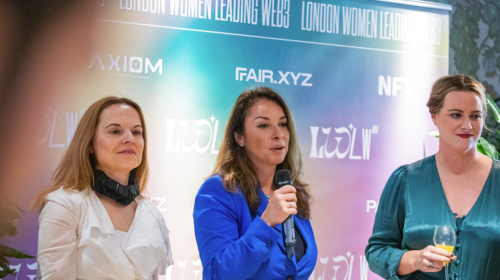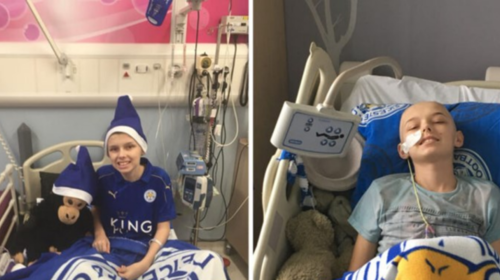What types of market research can I take part in?
Find out more about market research project types and learn which one is right for you.

There are lots of different types of market research you can get involved in. This means that there’s something for everyone (it’s not just for the opinionated or the extroverts). Here’s a quick overview of the market research methods and what you might be required to do, if you take part:
Online Community
A digital research experience from the comfort of your own home. An online community is exactly what its name is: a community of people, brought together in a secure, private online space and closely managed by a team of research moderators usually over a number of days or weeks.
The number of days the community lasts for and the approximate number of hours you’ll be expected to give will be communicated in the research advertisement.
They function much like social media channels do. You build a profile and then you’ll be set a program of tasks to complete whilst taking part. The tasks could include photos, videos, voice notes, written text, and surveys and vary per community, so it is important you have the right equipment and computer knowledge to complete the tasks in full. You’ll be expected to log on regularly during the start and finish date of the community to complete the tasks. Leaving all the tasks to the final day is not advised.
The tasks could be revealed all at once, but more commonly are posted every few days or can be ‘released’ on your successful completion of the previous task. You will be assigned a moderator who may communicate with you during the community and ask additional questions about some of your responses.
You’ll be asked to create a username during community onboarding. To protect your identity do not include any reference to your name or location. You’ll also be asked to upload a profile picture. Your posts may be viewed to create digital discussion amongst other members of the community. Some posts may be private and only viewed by the community moderator(s).
Online Board
Much like an online community, an online board is digital research experience you can do from anywhere. A board will usually take place over a number of days, and entail completing a series of tasks released on successfully completion of the task before. You are likely to be asked to upload photos, videos, voice notes, written text, and complete surveys and quizzes.
The difference between Online Board and Online Community is that your posts are only viewed by the moderating team and any interactions are solely with them. There is no digital interaction with any other person taking part.
Focus Groups
Focus groups usually consist of 5-7 like-minded individuals who have been selected based on a set on common criteria. Focus groups can be undertaken in-person in a venue (usually a viewing facility or event venue) or held online (often via ZOOM or on TEAMS). They are always led by a trained moderator who will ask the questions and chair the group.
Focus groups typically last between 60-minutes to 3-hours. Whether online or in-person you are always expected to arrive at least 5 minutes before the group starts and stay until the very end. You will be asked to put your phone on silent, remove yourself from any other distractions or interruptions, and treat the focus group as you would a business meeting.
Online focus groups always require you to have the right equipment. A laptop, desktop or tablet device is always required, so you can see everyone taking part at all times and often the moderator will want to share visuals and words with you, so the bigger the screen the better you’ll be able to see and give good insights. You will always need a fully working camera and microphone to participate, and you need to be in a location where you can (almost) guarantee a stable connection to the internet.
If you are considering involvement in a focus group, it is important that you are confident and can articulate your views and opinions to a group of people that you have never met before. It is also important that you can listen to the views of others, ensuring everyone has their say during the focus group.
Depth Interviews
Like focus groups, depth interviews (or depths) can be conducted online or face-to-face (and sometimes over the telephone). A depth interview is one-to-one interview between you and a moderator. You’ll be guided through the interview by the moderator as more of a discussion, rather than a series of questions and your response.
It is important that you know the subject you’re going to be talking about inside out and upside down, bringing your unique, real-life experiences to the interview allowing the moderator to uncover the truths about the topic.
Accompanied Shops
Love to shop? Then share this with a moderator, in-person, in-store and talk about it.
You’ll meet a moderator who be with you every step of the way. Sometimes they may simply observe your natural behaviour, sometimes they will ask questions about what you see, what you think and why you did something whilst shopping. They may ask your opinions ranges, display, packaging, merchandising, layout, signage, staff interactions and a whole host more.
In-home interviews
In-home interviews are often conducted when a research team want to get into the nitty-gritty of their customers and purchasing choices. They can also be done if the researcher wants to observe and delve into natural behaviour or because the equipment required is already in your home. They may also be undertaken if you have specific mental or physical needs, removing barriers, enabling you to contribute to the research study.
You’ll always know beforehand who’s coming to your home, what they look like, and they must present their ID before you allow them in. You’ll often have a quick introductory phone call before, and we’ll always talk through concerns and queries prior to your session, giving you the peace of mind to participate.
Workshops or Co-Creation Sessions
These longer sessions require your mental stamina. Usually between 3 and 6 hours long, these workshops require focused, creative, confident, articulate and quick-thinking individuals to bring their skills and opinions to session with gusto.
Almost always, workshops and co-creation sessions are held face-to-face. This is because they’re very interactive, requiring you to get involved with discussion alongside an activity or collaboration with other people, workshopping a solution to a problem. You may be asked to look at prototype products, test new solutions and critique design or advertising.
These sessions will commonly include members of the research sponsor team who will want to hear and see first-hand reactions (good or bad) to their new product, design or service.
Ethnographies
Often observational based, in-part with depth(s) following on. The observation part of this research allows moderators to observe your conscious and unconscious behaviour. Sometimes this research is done with a moderator in-person quietly room seeing and recording what, when and how you do things. Alternatively, ethnographies can be done remotely with motion sensor cameras recording footage in the same way.
Research Panels:
Panels are a great way to regularly engage in research over a long period of time (usually around 12 months). You become one of a pool of people who are invited to take part in surveys and questionnaires, or to smaller, more intimate research options like focus groups, accompanied shops and depth interviews. Research opportunities are advertised to panel respondents only, and you register your interest to take part in the ones that pique your interest, or you have time to take on.
Each opportunity you take part in is rewarded with a separate incentive, so you’re almost guaranteed incentives throughout the duration the panel exists.
If you’re considering joining a research panel, our best advice is to ensure that the subject of the panel is of real interest to you, or you feel passionately about. You’ll get more from getting involved and the researchers and research sponsor will benefit from your engagement and deeper insights.
Pre-Tasks or Post-Tasks
These are usually short activities required to be undertaken by you before or after the main research session. A pre-task will prepare you, getting your mind into gear in preparation for the session. They also help the moderator to understand more about you, how you do things and your likes and dislikes before you meet. Post-tasks are often used to qualify an experience you may have discussed in your research session.
The format of pre and post-tasks can vary greatly from completing a survey, creating a mood board, buying a product, keeping a usage diary, or designing your product wish-list.
It’s important that you complete these in full and submit any response by the deadline. They often help you a little more than they help the researchers and enable you to give better and more organised insight in the main research session.
The incentive value of pre and post-tasks is always communicated separately to the main research session incentive value.
Surveys
Surveys can be completed in lots of different ways – store exit surveys, on-street surveys, telephone surveys, online surveys, mobile surveys. They’re all about collating hundreds of responses in the same way every time to produce a dataset. The data is then analysed checking for frequency, similarities, differences, and patterns informing critical decisions for brands and companies across every area of their business. A research project often starts with a survey, allowing researchers insight into trends across a brands consumer, before progressing on to more in-depth research formats to understand the human truths.
Surveys are often not incentivised, although often you can opt in to enter a prize draw for a chance to win a voucher for taking part. Doing a survey may also present the opportunity for further research opportunities connected to the same project.
Product Tests
Have you ever seen on an advert for moisturiser or shampoo, “over 97% of people who tested, agree”? The statistic has come from market research product testing.
The whole reason for product testing is to record and collate lots of people’s opinions in the exact same way, to discover similarities, differences, negatives and positives. Often used in the development of new products or the redesign of existing products a brand can modify, curate, select or discount concept products before they take them to market.
Product tests can be in-person at a venue. These are often held when additional equipment is required for you to test the product(s) thoroughly and some level of rigour and control is required to enable you to do so.
At home tests require products to be sent directly to your home. You’ll be provided with a set of user instructions for the product(s) you are testing, over a number of days exactly to the instructions. It’s likely that you’ll feedback your experience via online surveys.
User Experience (UX Testing)
Much of how we plan and research, what we experience and and how we browse and purchase now takes place online. Testing website navigation, functionality and online services, experiences and interactions with brands online is key to ensuring online sale success and customer satisfaction. UX testing can take place face-to-face (so your directly observed), online including interactions with a moderator or independently online and recorded.
Market research should always be conducted by trained moderators, interviewers and researchers. For interviews involving children, these will be conducted by DBS checked moderators and parental consent will always be sought.
Still confused? Or have questions about a research type we've not answered? Get in touch: hello@giveopinions.co.uk



